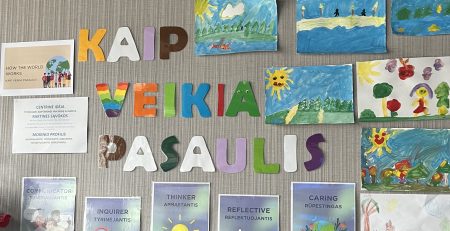How to help you and your children, emotionally, during an ongoing military conflict?
The ongoing military action by Russia on Ukraine is affecting many people. It ranges on a scale from despair, apathy, helplessness, sadness and fear to panic, anger, rage, and resentment. It is clear that uncertainty about the current situation causes tension, anxiety, and stress.
Children‘s, social, emotional and critical thinking skills are at a very intense phase of development and can be affected in any number of ways by exposure to military conflict, as well as how we, as parents, family and friends, react to the current environment.
The affect may manifest in the following ways, but not exclusively:
- the child’s personality;
- the child’s psychological resilience skills;
- the child’s previous experiences;
- the variety of levels and forms of assistance available and targeted to the child;
- the sensitivity, understanding, level of accessibility and ability to normalize the current situation of the child’s social environment (family, school, friends, community), etc.
It is vert important to emphasize, that how parents react and respond to the military conflict will contribute to the childs view, understanding, interpretation and meaning, regarding current events surrounding Ukraine.
As a consequence, to safe-guard children‘s wellbeing, we suggest the following:
When talking to children about the current military conflict, it is vitally important for parents/guardians, teachers and other adults, who are important to the child, to be aware of, and consider the feelings of the child.
Where possible one should consider and understand one‘s emotional state, and avoid transferring those emotions onto the child. It is advisable to better understand ourselves, before we address and respond to the safety needs of children. It is extremely important for us to distinguish between our anxiety and its forms of expression from the child’s anxiety and the ways in which it manifests.
To better understand our emotional state, it may be helpful to ask the following questions:
- What feelings do I have at the moment?
- How do I know this is how I feel?
- How do I feel physically? (tension, numbness, pain, feelings of cold, heat, etc.)
- What do I feel …….. [name of feeling / emotion]?
- What do my …….. [name of feeling / emotion] needs at the moment?
- Where can I put my emotions (e.g. maybe it could be placed in a chest or maybe I need a whole shipping container)? By asking this question, we may help ourselves realize that we are more than our emotions. That we can take control of the situation, by understanding/controlling our emotions.
- When will I be ready to take useful action so that this emotion does not consume my whole being ?
- What might these steps be, and what help might I need?
- How will I understand that I understand my anxiety/emotions better?














